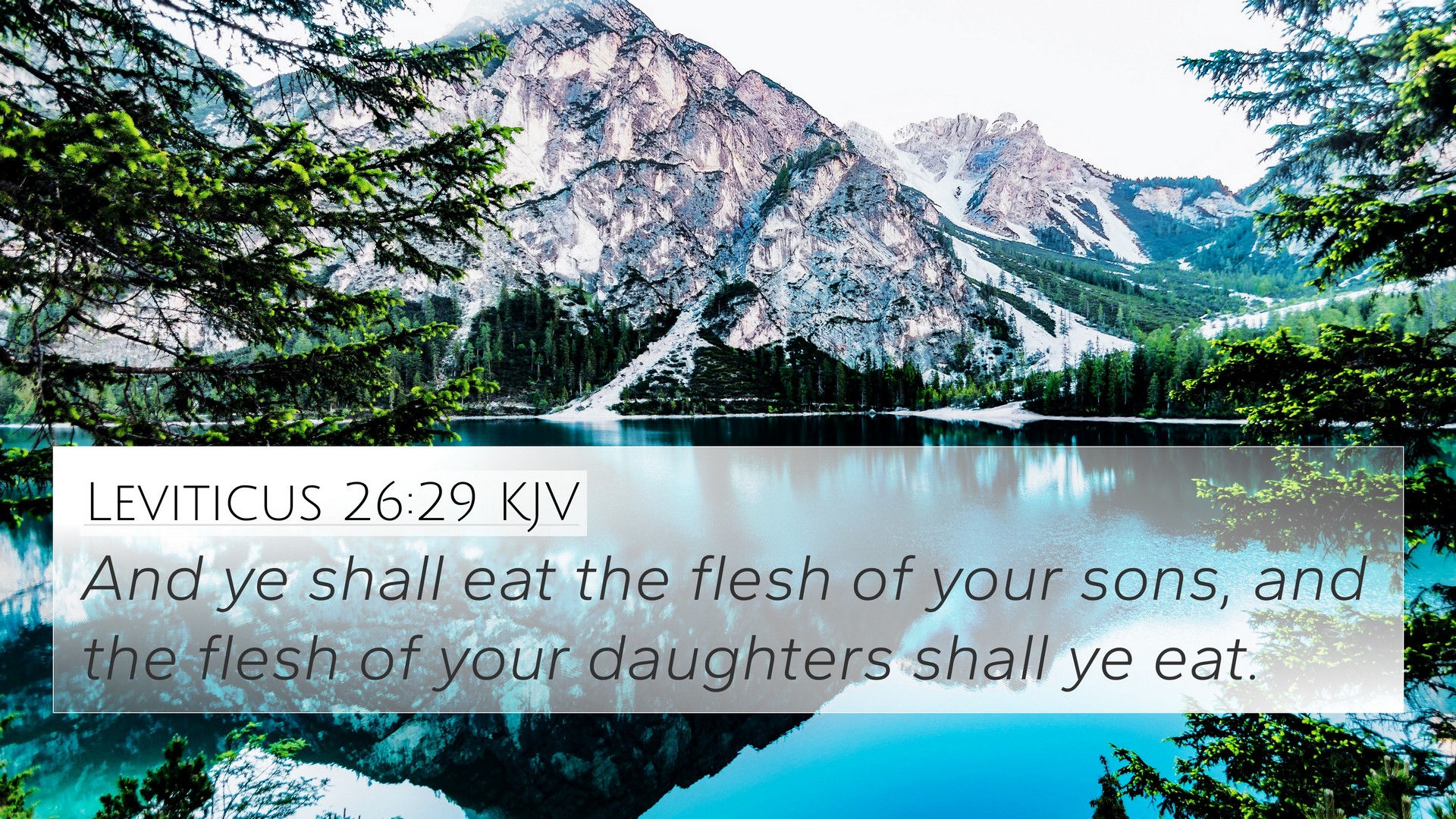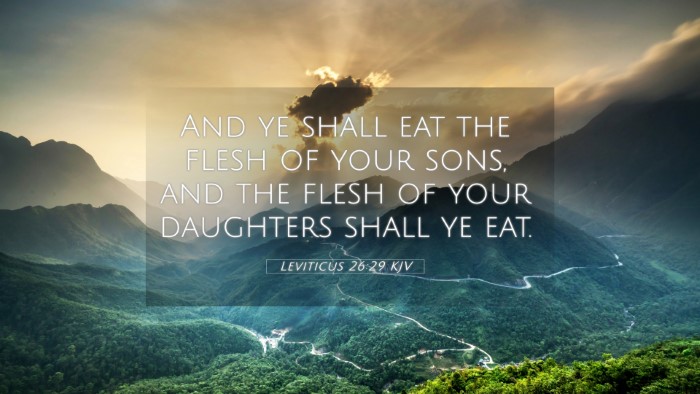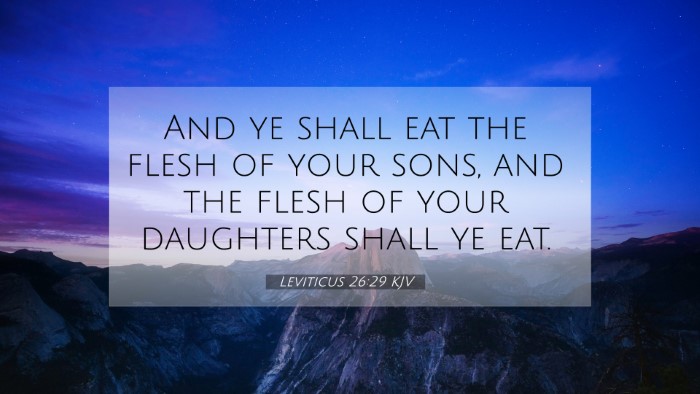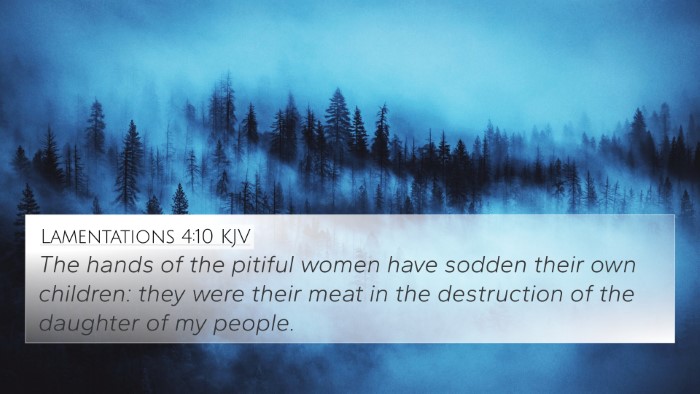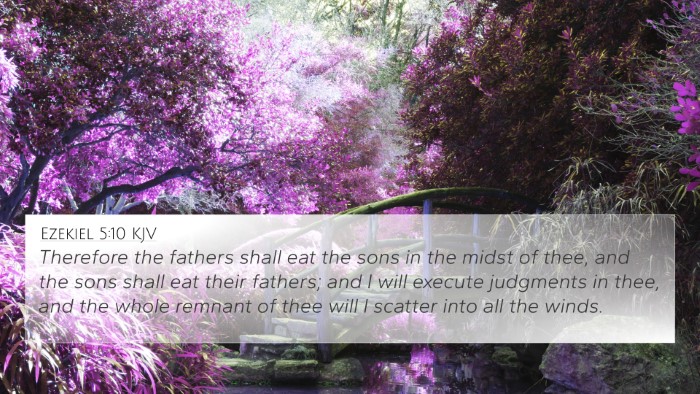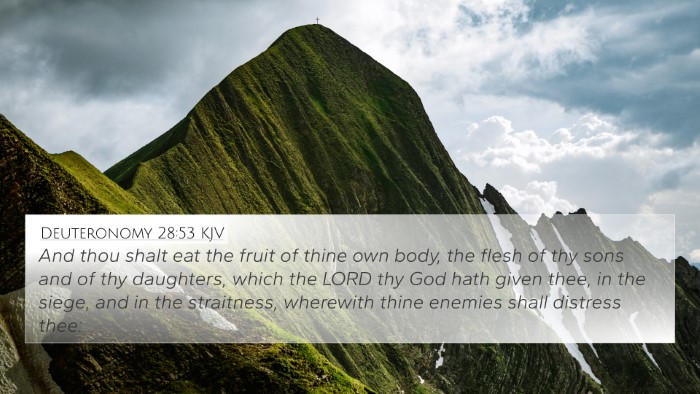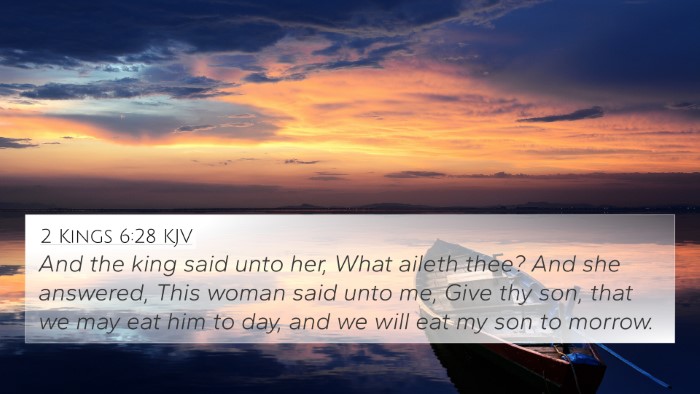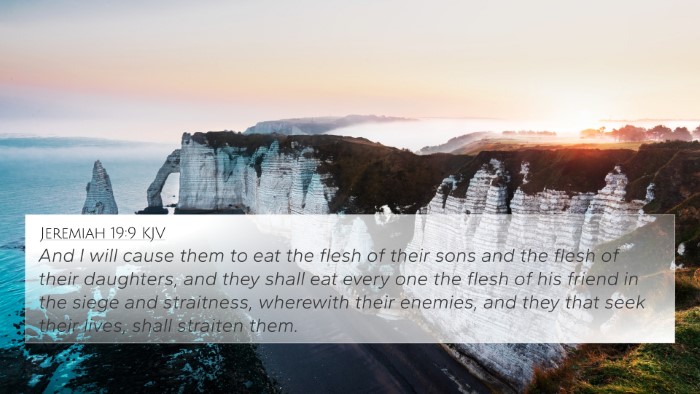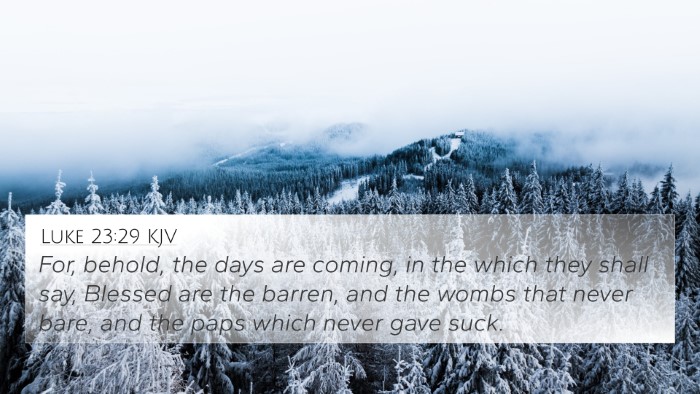Understanding Leviticus 26:29
The verse Leviticus 26:29 reads: "And ye shall eat the flesh of your sons, and the flesh of your daughters shall ye eat." This verse presents a stark warning of the consequences of disobedience to God’s commandments. Through insights from public domain commentaries, we can explore the deeper meanings and implications of this verse.
Context and Background
Leviticus is a book rich in laws and covenantal instructions given to the Israelites. Chapter 26 outlines the blessings of obedience and the curses of disobedience. The severity of the warnings serves as a reminder of the seriousness with which God views covenant faithfulness.
Interpretation Insights
-
Matthew Henry:
Henry emphasizes that this verse illustrates the extreme consequences that can arise from turning away from God’s commands. The imagery of cannibalism reflects the depths of despair and desperation that would befall a nation forsaking its divine covenant.
-
Albert Barnes:
Barnes notes that such a fate is portrayed as a figurative expression of the ruin that accompanies God’s judgment. It signifies the ultimate breakdown of society due to divine retribution and the moral decay that results from abandoning God’s laws.
-
Adam Clarke:
Clarke discusses how this passage reveals the influence of sin and judgment upon a people. He highlights the severity of the divine threat as a motivation for the community to adhere to their religious obligations.
Thematic Connections
This verse provides the basis for reflecting on the themes of obedience, consequence, and divine judgment throughout Scripture. It underscores the idea that forsaking the path laid out by God leads not only to spiritual decay but also to societal collapse.
Bible Cross-References
To deepen our understanding, we can identify several cross-references that relate to the themes found in Leviticus 26:29:
- Deuteronomy 28:53-57: Both passages discuss dire judgments where famine leads to extreme actions.
- Jeremiah 19:9: The prophet speaks of a similar judgment entailing horrific desperation.
- Ezekiel 5:10: Further elaborates on cannibalism as a sign of devastation caused by divine judgment.
- 2 Kings 6:28-29: Illustrates a vivid scenario of desperation in Samaria during a siege.
- Leviticus 18:21: Connects to the perils of idolatry and the resulting societal consequences.
- Romans 1:28-32: Describes the state of a society that turns away from God, leading to moral decay.
- Matthew 24:19: Refers to the challenges faced in time of tribulation, echoing similar themes of suffering.
- Lamentations 2:20: Speaks to the sorrows of Jerusalem during its judgment, mirroring the imagery of despair.
- Revelation 6:7-8: Highlights famine and death, linking it to judgment themes found throughout the Bible.
- Micah 3:3: Alludes to the severity of actions taken by those in leadership and their consequences.
Conclusion
Leviticus 26:29 serves as a powerful reminder of the consequences of disobedience to God. By engaging with various public domain commentaries, we gain a deeper insight into its meaning and significance. Through inter-Biblical dialogue, we find connections that reiterate the importance of maintaining faithfulness to God's commands to avoid dire consequences—both personally and societally.
Additional Resources
For those interested in further study, various tools for Bible cross-referencing can be used to explore other related themes. Utilizing a Bible concordance or Bible cross-reference guide can aid in cross-reference Bible study. Understanding how to use these tools can provide a wealth of insight into the Scriptures.
